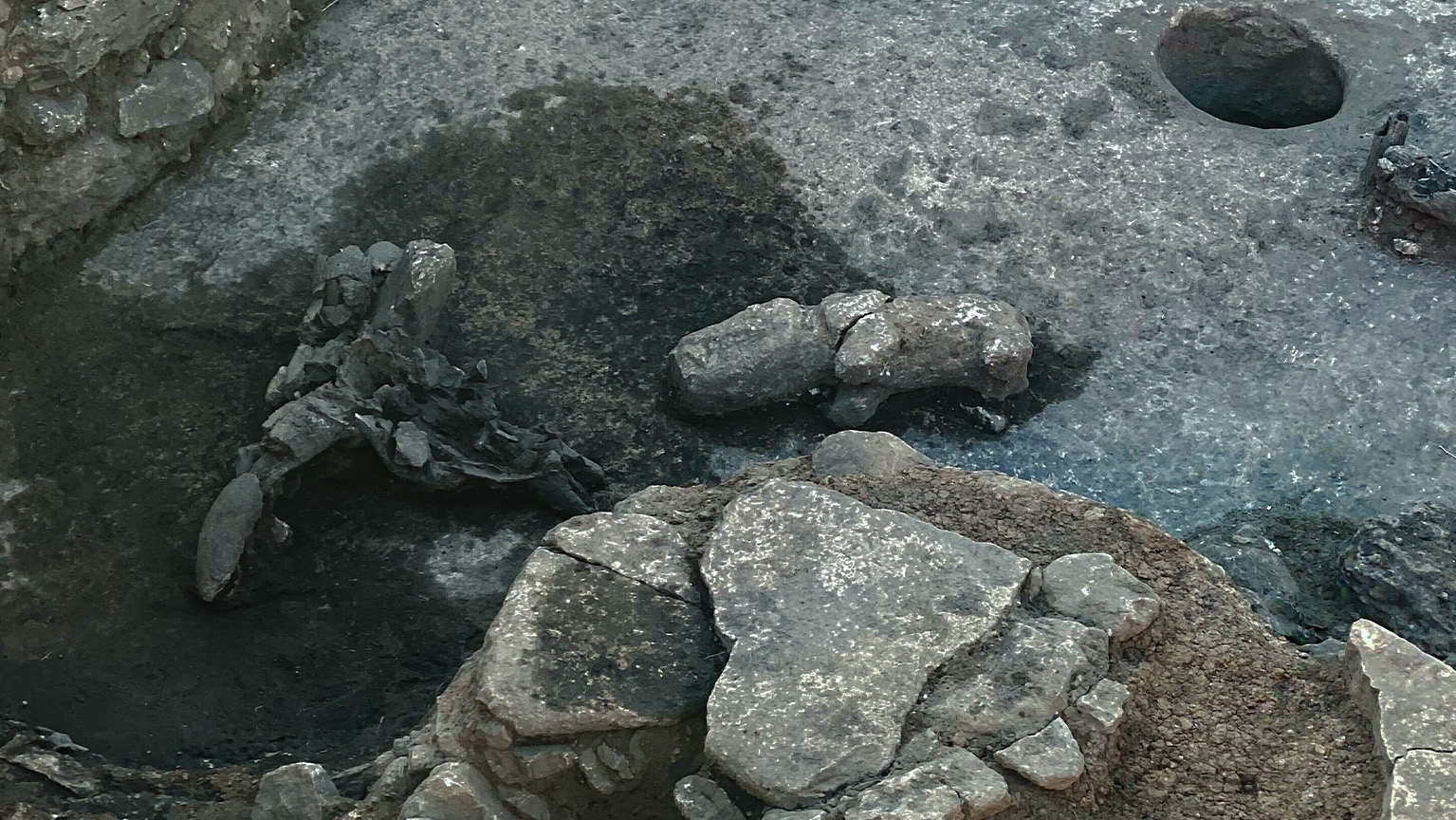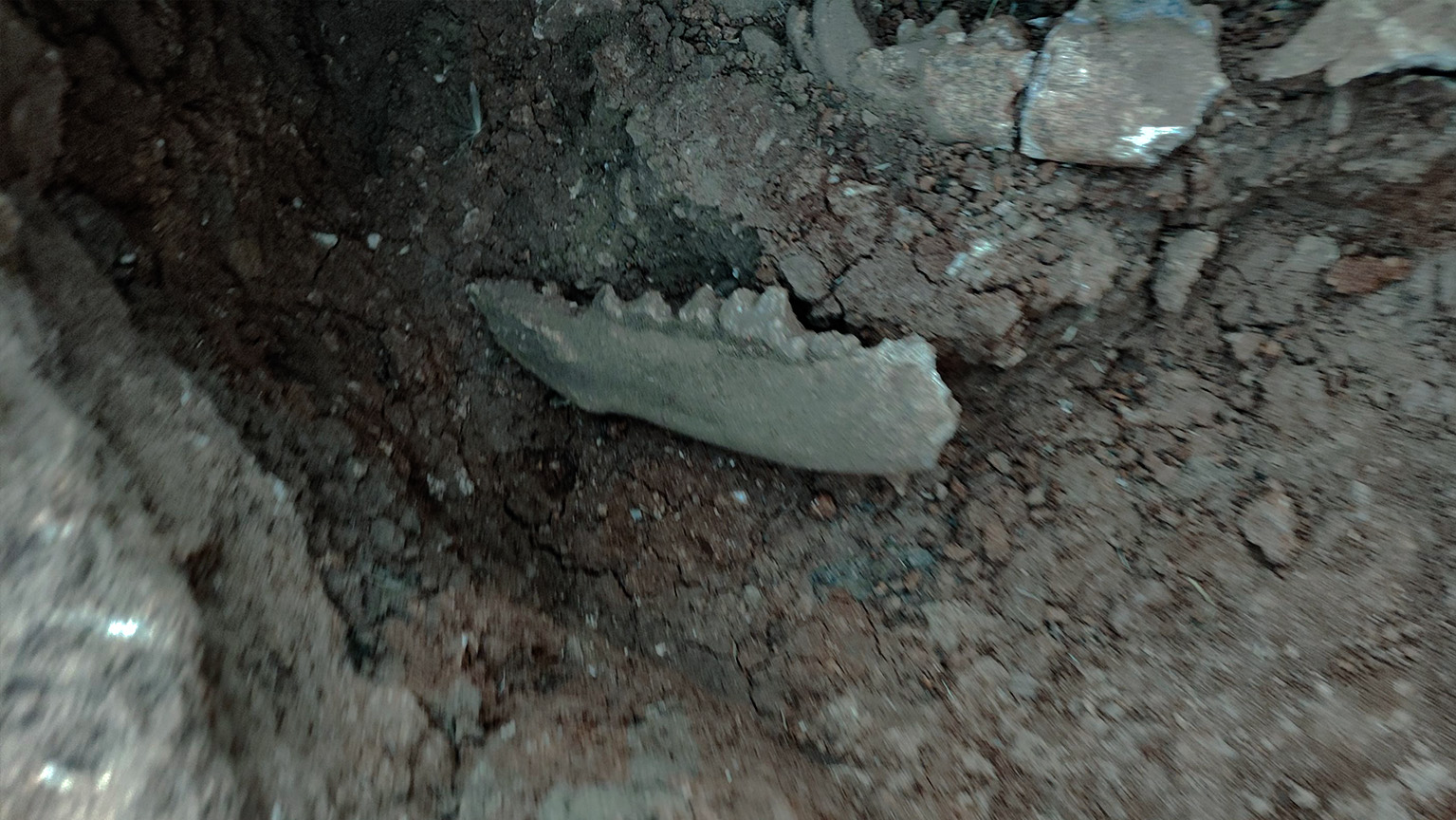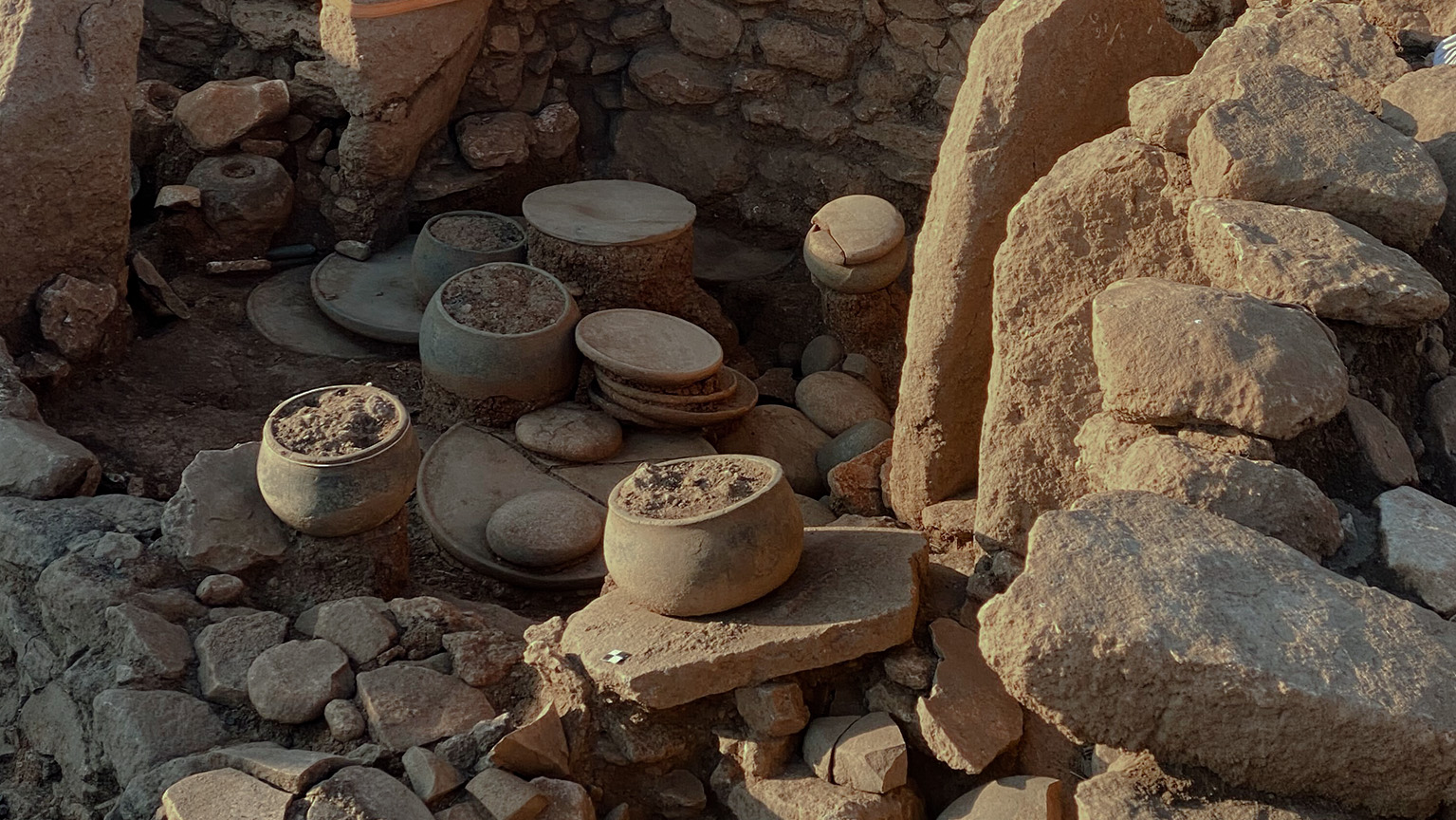Karahantepe continues to captivate the archaeological world with discoveries that provide valuable insights into the social life and ritual practices of the Neolithic period. During excavations at this significant archaeological site near Şanlıurfa, remarkable findings were unearthed in a structure located right next to the central communal building known as AD. Excavation of this structure began in 2023 and continued into 2024. Although smaller in size and not physically attached to the central building, it is believed to have been constructed for related communal purposes. These new findings shed light on the ritual and social life of Neolithic communities.

New Discoveries: Symbolic Artifacts and Animal Remains
The excavation team uncovered a room at ground level divided by pillars. This space, filled with red sterile soil, contains stone bowls, plates, and objects made of black chlorite stone, adorned with geometric and animal motifs, along with beads. These artifacts reveal the artistic and symbolic expression of the era.
In addition, within the structure, the remains of a leopard, vulture, and fox were discovered alongside large horns and skulls placed on the ground, as well as evidence of hearths and oven installations. These findings provide critical insights into the layout and function of early communal spaces and suggest that the area was likely a part of the broader communal complex. It is hypothesized that this space may have been used for practical purposes, such as cooking and food preparation.

Possible Function as a Ritual Preparation Area
The proximity of this newly unearthed structure to the central communal building AD is a noteworthy detail. Researchers speculate that this building may have served as a preparation room for rituals and gatherings conducted in AD. This potential connection highlights the structure's role in supporting ceremonial and communal activities.
Contribution to Understanding The Neolithic Period
The findings at Karahantepe make significant contributions to our understanding of ritual practices and social organization in the Neolithic era. The hearths, skulls, remains of a leopard, vulture, and fox, wolf jaw, stone bowls, and plates all indicate that this structure was a multifunctional space. Believed to have been used for preparation and cooking activities, this building raises new questions about the complex social structures of Neolithic communities.



